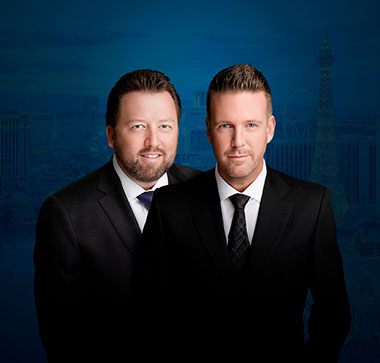Trucking Law – Trucking Freight Broker can be held liable in State Court says 9th Circuit despite the FAAA which was thought to mandate Federal status. See Case R.T. Services et al.

The preemption clause contains a savings provision with respect to the safety regulatory authority of the state. For years, the freight broker industry has been arguing with mixed success in Federal District Courts that any claim of negligence arising from its selection of motor carrier who is contracted with the broker to transport cargo is preempted by the FAAA. The 9th Circuit found that the negligent hiring claim against Broker was saved from preemption as it fell within safety regulatory authority of the State.
Preservation of Evidence – Can having a pre-litigation medical procedure be considered spoiling the injury evidence?

The Wet-n-wild case reasoned a jury instruction is proper that a jury must adversely inference that the destruction of property would have benefited the party whom did not destroy the evidence when a party intentionally or willfully destroys evidence. In other words, the evidence would likely have been unfavorable to the party who destroyed it. The Court held “…, the evidentiary rationale springs from the notion that “a party with notice of an item’s possible relevance to litigation who proceeds nonetheless to destroy it is more likely to have been threatened by the evidence than a party in the same position who does not destroy it.” Welsh v. U.S., 844 F.2d 1239, 1246 (6th Cir.1988). “The second rationale acts to deter parties from pretrial spoliation of evidence and serves as a penalty, placing the risk of an erroneous judgment on the party that wrongfully created the risk.” Id. (quotation omitted). Both rationales seem to apply to Wet ‘N Wild.” Wet “N Wild Nevada, Inc., 113 Nev. 967 (1997). In recent years, defense attorneys and insurance companies have stretched this spoliation theory to include medical injuries. That, injuries such as spinal and discogenic injuries must not be fixed or corrected until the defenses medical expert has had the opportunity to inspect the patient.
The theory behind the argument is that if the injury was preexisting that failure to allow an inspection of the injury would preclude expert opinion on the defense for medical causation purposes. The notion is flatly absurd, and medical care is often emergent and time necessary. There are numerous reasons spoliation in this context is erroneous. First, medical treatment of injuries does not prevent a medical expert from opining as he can still rely on imaging studies to form opinions.
Second, the there is no real examination of the injury other than medical films anyway, so repairing the injury situs is not destroying the necessary information used to opine. The argument is that range of motion and patient interviews on pain and sensation are hindered as the patient is no longer in a presurgical condition. This would appear to be of very limited value, and serve as an excuse rather than a viable reason to even need such an exam.
Nonetheless, these tactics are used to fight legitimate medical treatment and serve to delay and further victimize a Plaintiff who’s attempting to simply get better and be made whole. Additionally, the notion the evidence is actually “destroyed” is a misnomer. The evidence is preserved in photographic form, and is really not destroyed; the spine can still be examined even if not in its original state. Finally, it begs the question whether the medical treatment was done “intentionally”— if your doctor says you need a procedure and it is medically necessary, the intent to “destroy” appears to be a stretch. Nevada Judges and Discovery commissioners who have ruled on this issue tend to agree, but there is no case law on the issue of whether having a prelitigation surgery is considered destruction of evidence.
Filing in Different Venue to Preserve Statute of Limitations is effective Procedural Move.

Prudent lawyers may file in advantageous jurisdictions that either may be more convenient for the litigation, simply an easier place to do things, or simply just cost efficient. The rule states the lawsuit must be filed where the obligation to be performed (contracts), or where the defendant resides or cause of action arose. Sometimes another venue is chosen as the witnesses may be closer and thus its less travel involved.
NRS 13.010 Where actions are to be commenced.
1. When a person has contracted to perform an obligation at a particular place, and resides in another county, the action must be commenced, and, subject to the power of the court to change the place of trial as provided in this chapter, must be tried in the county in which such obligation is to be performed or in which the person resides; and the county in which the obligation is incurred shall be deemed to be the county in which it is to be performed, unless there is a special contract to the contrary.
2. Actions for the following causes shall be tried in the county in which the subject of the action, or some part thereof, is situated, subject to the power of the court to change the place of trial as provided in this chapter:
(a) For the recovery of real property, or an estate, or interest therein, or for the determination in any form of such right or interest, and for injuries to real property.
(b) For the partition of real property.
(c) For the foreclosure of all liens and mortgages on real property. Where the real property is situated partly in one county and partly in another the plaintiff may select either of the counties, and the county so selected is the proper county for the trial of such action; but, in the case mentioned in this paragraph, if the plaintiff prays in the complaint for an injunction pending the action, or applies pending the action for an injunction, the proper county for the trial shall be the county in which the defendant resides or a majority of the defendants reside at the commencement of the action.
A change of Venue is a way of moving the situs of the trial, and can be done under NRS 13.050. Lawyers often stipulate to move the venue if all agree the original location is not the best for all parties. Credence is often given to the plaintiff’s chosen venue however, and if good reasons exist to keep it there, the Plaintiff may refuse to stipulate and make the defendants files appropriate motions to transfer venue.
NRS 13.050 Cases in which venue may be changed.
1. If the county designated for that purpose in the complaint, petition or motion is not the proper county, the proceeding may, notwithstanding, be tried or heard therein, unless:
(a) After the filing of a complaint or petition, the defendant demands in writing, before the time for answering expires, that the trial be had in the proper county, and the place of trial be thereupon changed by consent of the parties, or by order of the court, as provided in this section.
(b) In a proceeding in which the court has continuing jurisdiction after the issuance of a final order, judgment or decree, including, without limitation, any proceeding for divorce, annulment, separate maintenance or parentage or custody of a child and where no party currently resides in the county in which the order, judgment or decree was entered, the respondent demands in writing, before the time for filing a response expires, that the petition or motion be heard in the county of residence of either party to the proceeding or in the county where the child who is the subject of the proceeding resides, or by order of the court, as provided in this section.
2. The court may, on motion or stipulation, change the place of the proceeding in the following cases:
(a) When the county designated in the complaint, petition or motion is not the proper county.
(b) When there is reason to believe that an impartial proceeding cannot be had therein.
(c) When the convenience of the witnesses and the ends of justice would be promoted by the change.
(d) When any defendant in a case commenced in a county without a business court requests a change to a county:
(1) With a business court; and
(2) In which the case, if originally commenced in such county, would be eligible for assignment to the business court.
(e) When each of the parties consent to the change.
3. When the place of the proceeding is changed, all other matters relating to the proceeding shall be had in the county to which the place of the proceeding is changed, unless otherwise provided by the consent of the parties in writing duly filed, or by order of the court, and the papers shall be filed or transferred accordingly.
4. As used in this section, “business court” means, as designated pursuant to the rules of the applicable district court:
(a) A business court docket;
(b) A business matter designation; or
(c) At least one business court judge.
Automobile Medical Payments Coverage and Medicare: Hospitals are taking auto insurance med-pay as primary payment – Does this violate the law?
Upon reading NRS 449A.159 and 449A.162 it is clear that Hospitals must follow certain guidelines for accident victims who have health insurance and use a hospital for treatment. Under NRS 449A.162, a hospital is barred from billing the client/patient for more than the insurance contracted rate.
Hospitals often attempt to collect the medpay during the admission process, making accident victims sign a form stating the hospital is to bill the medical payments first, and typically have no idea they are signing away the hospitals duty to bill the health insurance.
NRS 449A.162 allows the hospital to bill the medical payments coverage, but limits that payment to any deductible owed and must be returned “not later than 30 days” after coverage determination. Hospitals must bill the health insurance coverage.
NRS 449A.162 Limitations on efforts of hospital to collect when hospital has contractual agreement with third party that provides health coverage for care provided; return to patient of any excess amount collected; exception.
1. Except as otherwise provided in subsection 3, if a hospital provides hospital care to a person who has a policy of health insurance issued by a third party that provides health coverage for care provided at that hospital and the hospital has a contractual agreement with the third party, the hospital:
(a) Shall proceed with any efforts to collect on any amount owed to the hospital for the hospital care in accordance with the provisions of NRS 449A.159.
(b) Shall not collect or attempt to collect from the patient or other responsible party more than the sum of the amounts of any deductible, copayment or coinsurance payable by or on behalf of the patient under the policy of health insurance.
(c) Shall not collect or attempt to collect that amount from:
(1) Any proceeds or potential proceeds of a civil action brought by or on behalf of the patient, including, without limitation, any amount awarded for medical expenses; or
(2) An insurer other than an insurer that provides coverage under a policy of health insurance or an insurer that provides coverage for medical payments under a policy of casualty insurance.
2. If the hospital collects or receives any payments from an insurer that provides coverage for medical payments under a policy of casualty insurance, the hospital shall, not later than 30 days after a determination is made concerning coverage, return to the patient any amount collected or received that is in excess of the deductible, copayment or coinsurance payable by or on behalf of the patient under the policy of health insurance.
3. This section does not apply to:
(a) Amounts owed to the hospital which are not covered under the policy of health insurance; or
(b) Medicaid, Medicare, the Children’s Health Insurance Program or any other public program which may
pay all or part of the bill.
4. This section does not limit any rights of a patient to contest an attempt to collect an amount owed to a hospital, including, without limitation, contesting a lien obtained by a hospital.
5. As used in this section, “third party” means:
(a) An insurer, as defined in NRS 679B.540;
(b) A health benefit plan, as defined in NRS 687B.470, for employees which provides coverage for services and care at a hospital;
(c) A participating public agency, as defined in NRS 287.04052, and any other local governmental agency of the State of Nevada which provides a system of health insurance for the benefit of its officers and employees, and the dependents of officers and employees, pursuant to chapter 287 of NRS; or
(d) Any other insurer or organization providing health coverage or benefits in accordance with state or federal law.
(Added to NRS by 2011, 1524; A 2017, 4115; 2019, 1109) — (Substituted in revision for NRS 449.758)
Hospitals are limited to 55% of the billing charge for collection on accident victims who may have Medicaid, Medicare, or other Public Program.
Under NRS 108.655, Hospitals that bill a public program participant like Medicare, are limited to collect 55% of the total bill charged. Thus, if Medicare only pays $3,000 of a $20,000 bill, They would be capped at $9,350 for collecting the remainder of the total under the law (55% of $20,000). N.R.S. 108.655: Limitation on receipt of money under lien of injured person eligible for Medicaid, Medicare, Children’s Health Insurance Program or other public program Effective: July 1, 2017.

is equal to more than 55 percent of the charges billed by the hospital.
626 S 10th St
Las Vegas, NV 89101
(702) 382-9797


